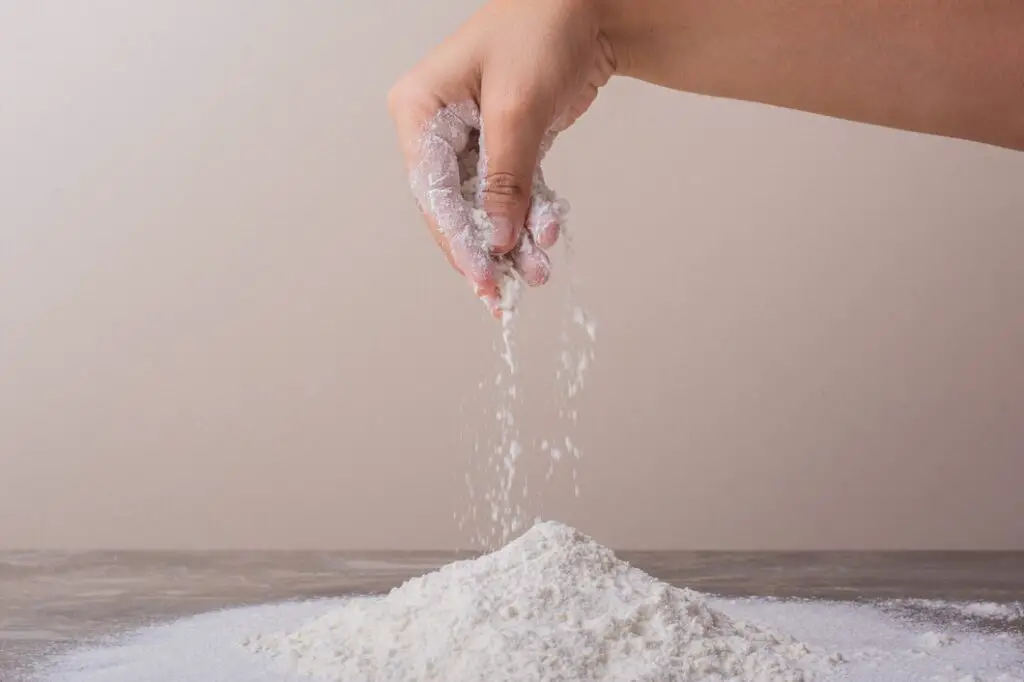Groundwater is a common source of well water, but it may contain high levels of salt that can make it unsuitable for drinking and potentially harmful to human health. When salt is mixed with water, it separates into positive (Sodium) and negative (Chloride). While these ions are naturally present in various water sources, high concentrations can pose health risks such as high blood pressure.
In this informational blog, we’ll discuss the chemistry of salty well water, the health risks caused by salty well water, and solutions to fix salty well water.
1. Is Salty Well Water Bad For Your Health?
Whether or not salty well water is harmful to your health depends on the concentration of salt in your well water. While salts are necessary for the proper functioning of our body, consuming too much salt can cause health problems.
Let’s examine how salty well water can affect your health:
1.1 High Blood Pressure
High levels of salts (may be present in well water) can raise your blood pressure, which is harmful to your heart and blood vessels.
High sodium levels in your body cause you to retain more water, leading to raised blood pressure. This can lead to heart disease and stroke if not managed properly.
1.2 Kidney Health
A kidney is responsible for filtering waste and excess fluids from your body. Consuming high levels of sodium can burden your kidneys, and high salt consumption forces your kidney into overdrive, leading to potential damage to your kidney.
2. How Much Salt is Too Much For Your Well Water?
The purest water contains less than 20 milligrams per liter (mg/L) and 30 milligrams per liter (mg/L) of chloride according to the World Health Organization (WHO) and the U.S. Environmental Protection Agency (EPA).

However, along the Seacoast, sodium and chloride levels are typically higher, around 75 mg/L of sodium and 150 mg/L of chloride.
3. How Does Sodium and Chloride Get Into Your Well Water?
Have you ever wondered, “What is the reason for the salty taste in my well water?” Let’s uncover the mystery behind salty well water. Salt can enter your well through a few common pathways, so let’s explore them together:
3.1 Natural Sources
One of the primary reasons for salty water is the presence of natural minerals in the earth. Sodium chloride (found in table salt) can gradually dissolve into groundwater. These dissolved minerals are commonly found in both surface and underground water sources.
So, when you draw water from your well, it may have interacted with these minerals, imparting a salty taste.
3.2 Human Activity
Human activity can increase saltiness in well water through groundwater overuse, pollution from industry and agriculture, salt application, and climate change. These factors degrade water quality, making it unsuitable for drinking without treatment.
When saltwater mixes with freshwater, it elevates the sodium content, leading to water that is less refreshing and has a salty taste.
3.3 Nearby Bodies
If there are water bodies nearby with high salt levels such as oceans, excessive pumping of groundwater can create a pressure difference, pulling saltwater into the aquifer.
This phenomenon is known as saltwater intrusion, which leads to the contamination of well water with salt, resulting in a salty taste.
4. How To Test Salt Level In Your Well Water?
If you suspect that there’s excessive salt in your well water and you’re considering taking action, it’s crucial to test your water to determine the sodium levels.

You have a few options available to test your salty well water:
4.1 Water Tasting Kits
You can test your well water quickly and conveniently by using a DIY test kit, which you can find online or at your nearby home improvement store. These kits typically include test strips that change color to indicate the salt level in your water.
Simply, follow the instructions provided with the kit, and you’ll get an estimate of the sodium levels in your well water.
Keep in mind that although these kits are convenient, they may not offer the same accuracy as other testing methods.
4.2 TDS Meters
Another useful tool for testing the salt content in your well water is a TDS (Total Dissolved Solids) meter. This device measures the electrical conductivity of your water, which increases with the presence of dissolved salts and other minerals.
TDS meters are a more effective method of testing salty well water than a DIY test kit.
4.3 Professional Water Testing
If you want to test your salty well water accurately, then you want a professional water testing laboratory or water testing service. These institutes provide you with a comprehensive report on your well water’s composition, including sodium levels.
You can also search online or ask for recommendations from your local health department.
5. How To Remove Salts In Your Well Water?
In our previous discussions, we covered the impact of chloride and sodium in well water on your health, as well as methods for testing.

Now, let’s delve into solutions or methods for removing salts from your well water:
5.1 Reverse Osmosis
Reverse osmosis systems are effective in removing salt and other contaminants from your water. These systems work by pushing water through a semi-permeable membrane, which filters out salt, heavy metals, and other impurities.
Reverse osmosis systems can be installed at any point, such as under your kitchen sink, or in a whole-house system. While they are highly efficient at removing salt, it’s important to note that they produce some wastewater during the filtration process, so this should be taken into account when deciding on this option.
5.2 Water Softener (Ion exchange water softeners)
A water softener is a device that makes hard water softeners by removing minerals like calcium and magnesium. It does this using a process called ion exchange, where these minerals are swapped for sodium ions. This helps prevent scaling and buildup in pipes and appliances, improving water quality.
As water passes through the resin, the sodium ions are swapped for either sodium or potassium ions, depending on the type of salt used in your softener.
It’s important to note that while ion exchange water softeners can lower salt content, they may not be suitable for extremely high sodium levels.
5.3 Distillation
A distillation water treatment system operates by utilizing temperature changes to evaporate and then recondense clean water. Typically Inorganic minerals like sodium and chloride do not transfer into the condensed water, but some organic contaminants might transfer into condensed water.
These systems are commonly installed under the sink or counter and may lead to increased energy costs for a household.
For most individuals, removing sodium and chloride from their home’s water supply isn’t necessary for health reasons. However, if you’re concerned about these substances in your water, reach out to Skilling & Sons for a consultation.
Conclusion
Managing salty well water is crucial for maintaining health and ensuring safe drinking water. High levels of sodium and chloride can lead to health issues like hypertension and kidney damage. Enhancing our comprehension of contamination sources, whether originating from natural minerals or human activities, is paramount. Testing water for salt levels is vital, using kits or professional services for accurate results. Effective removal methods such as reverse osmosis and water softeners can help reduce salt content. Seeking guidance from experts ensures customized solutions for preserving water quality.
Proactive measures are necessary to safeguard health and sustain the long-term viability of the water supply. By addressing salty well water concerns promptly, individuals can protect their well-being and access clean, drinkable water.
FAQs (Mostly Asked Questions by People)
Why is my well water salty?
Salty well water can be caused by various factors such as high levels of naturally occurring minerals like sodium and chloride, intrusion of saltwater into the aquifer, or contamination from nearby sources.
What are the potential health risks associated with drinking salty well water?
Drinking water with high salt content can lead to health issues like hypertension, kidney problems, and cardiovascular issues. It’s crucial to address the saltiness to ensure the water is safe for consumption.
Can I use a water softener to fix salty well water?
Water softeners primarily target calcium and magnesium ions, not sodium or chloride. Using a water softener won’t effectively reduce salt content in your well water.
How can I test the salt level in my well water?
You can use water testing kits specifically designed to measure salt levels or consult a professional water testing service to analyze your well waterhttps://wellwaterguru.com/how-deep-should-a-well-be-for-drinking-water/ for salt content accurately.
What treatment options are available to reduce saltiness in well water?
Options include reverse osmosis systems, distillation, or ion exchange systems specifically designed to remove sodium and chloride ions from water.





